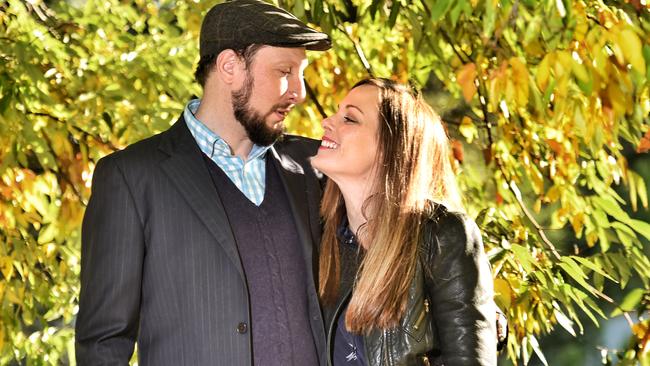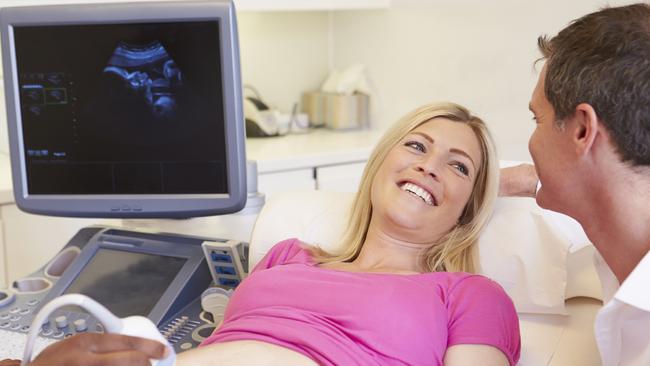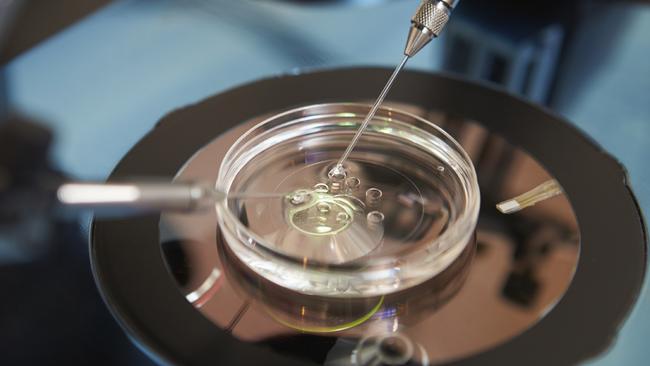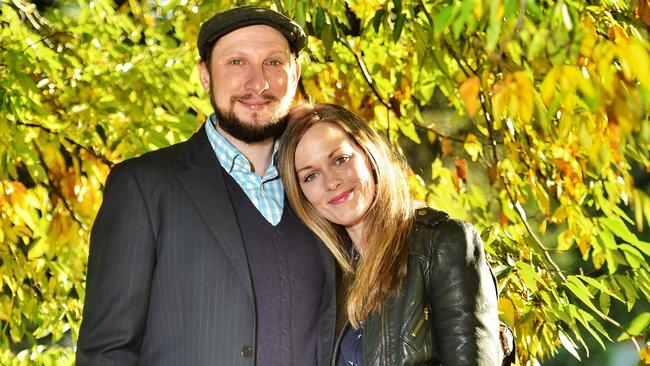Stress link to fertility unlocked by RMIT researchers
RELAXING and letting nature take its course is often the advice given to couples trying to conceive — but is stress really the reason why they are struggling? A Melbourne study may have unlocked the reason why.

VIC News
Don't miss out on the headlines from VIC News. Followed categories will be added to My News.
STRUGGLING to conceive a baby is stressful, but could this psychological state be one of the drivers of infertility?
One in four couples worldwide struggle to have a baby naturally, and stress is often raised as a reason for unexplained infertility.
Animal studies indicate psychological stress may be a major contributor to infertility, but in humans the link is unclear, controversial and understudied.
But an RMIT University research review suggests stress may negatively impact upon fertility by interfering with a crucial hormone involved in modulating the body’s response to stress.
WHY MEN RISK MISSING OUT ON CHILDREN
PRESERVING WITH IVF WILL REAP REWARDS
IVF REVIEW UNDERWAY IN VICTORIA

Lead author Dr Luba Sominsky studied the role of a gut hormone called gherlin on stress.
“Our group found that gherlin can either exacerbate or suppress the way we respond to stress and there is also evidence that it is involved in modulating reproductive function,” she said.
“We are proposing that there is a novel link between gherlin, stress and infertility.”
Given the dearth of scientific evidence, Dr Sominsky is now conducting basic science in the laboratory to better understand how the hormone may affect fertility.
“The role of stress and infertility is very controversial,” she said.
“In animal models, it’s widely accepted that chronic stress can suppress ovulation and reduce the chances of conceiving, but in humans it is much more complex.”
“I don’t want people to think that because they are stressed they won’t be able to conceive, but it could affect some people’s fertility negatively.”
The review, published in the journal Endocrine Reviews, found some evidence patients prone to anxiety, depression or high stress levels may benefit from psychosocial support during treatment.

Dr Karin Hammarberg from the Jean Hailes Research Unit and Victorian Assisted Reproductive Treatment Authority says stress is a symptom of infertility, not a cause.
“Trying to conceive is distressing, we know that, but I don’t think there is any good evidence to suggest that the reverse is true,” she said.
She said people who were depressed may have less sex; reducing their chances of conceiving spontaneously.
“Studies may find some kind of link, but you need to look at how they conducted the study and systematic reviews of all the data can’t find any relationship spontaneous conception and IVF outcomes and stress,” Dr Hammarberg said.
“But I always say to women if you are feeling worried, anxious or stressed, there is a good reason to find ways to manage that for the sake of feeling better and enjoying life more, but it’s not going to help with the whole issue of infertility.”
Semen testing revealed Melbourne couple Sophie Cleary and David Heinrich would find it almost impossible to have a baby without the help of IVF.

They tried to conceive naturally and overhauled their lives, while also taking part in a fertility lifestyle program and having acupuncture through the Fertility Pod.
“Before this, I thought IVF was a magic button you pressed, but your chances of success aren’t necessarily great depending on the cause of infertility, and it’s extremely stressful when you don’t know how your story is going to end,” Ms Cleary said.
“Acupuncture helped me to feel supported and calm during a very angst-ridden time.”
Mr Heinrich agreed that having the time to “take pause” from the distractions of everyday life was beneficial, and tests after the lifestyle interventions showed that although his sperm count was still low, count, movement and quality measures had improved.
“I felt energised and calmer after the lifestyle interventions so it definitely helped me cope with the stresses of the process,” he said.
While they don’t know exactly what worked, the couple believes stress reduction, lifestyle and luck helped them conceive their baby boy after one round of IVF.
“We know we are extraordinarily lucky,” Miss Cleary said.
“In our case, I don’t believe the science would have been as successful if we didn’t do all we could to prime our bodies.”
WHY YOUR COFFEE COULD BE MAKING YOU INFERTILE
EVERYDAY ITEMS CARRYING FERTILITY RISK
BOOSTING YOUR FERTILITY
- For women, age is still the single most important factor influencing their ability to have a child.
- Female fertility starts to decline around age 32 and after age 35 the monthly chance of conceiving decreases more rapidly.
- Age can also affect a man’s fertility and the chance of having a healthy baby.
- A healthy weight, diet and regular exercise can significantly boost fertility as can quitting smoking, stopping drug use and curbing heavy drinking.
Source: www.varta.org.au


